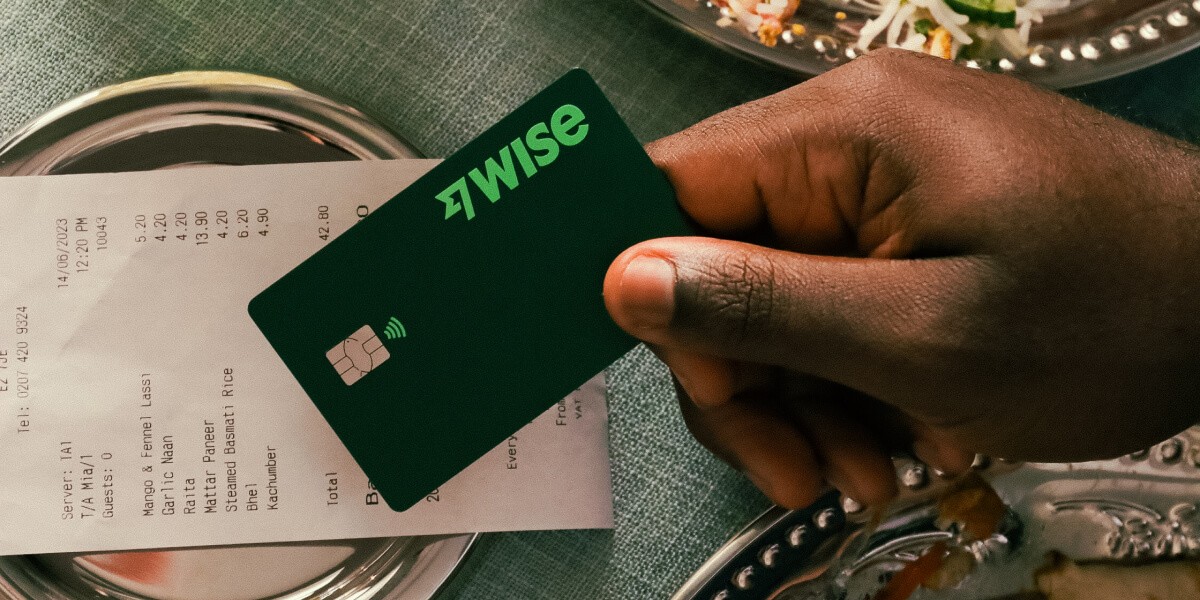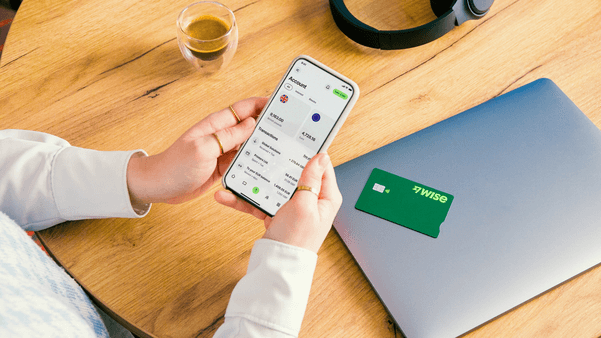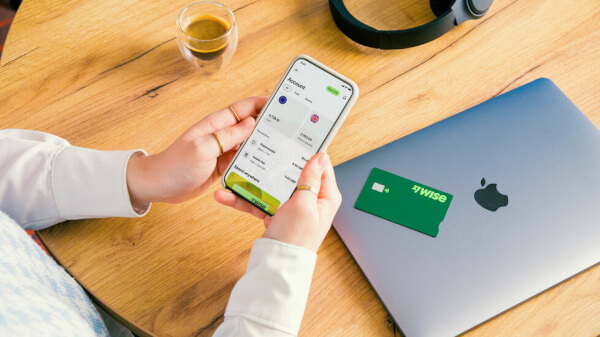5 Ways to Stand Out and Boost Black Friday Sales
Black Friday is the day after Thanksgiving, falling on Friday 29th November in 2024. It’s known for being a perfect time for snagging a bargain, opening the...

Importing goods from France to the UK can help your business grow. France is one of our closest neighbours and a major trading partner, and so a natural place to look for interesting and marketable imported goods, from reliable suppliers.
Learn more about how to import from France to the UK, including import charges from France to the UK, and the paperwork you’ll need to arrange in advance. We’ll also introduce Wise Business as a low cost way to pay French suppliers from the UK, with mid-market exchange rates for EUR transfers.
💡 Learn more about Wise Business
If you’re just getting started with importing you might find it easiest to have an agent or freight forwarder help you with the required processes and paperwork. However, having a decent understanding of how the process works is important - and once you’re used to importing protocols you can consider completing customs processes yourself. Read on for an introduction to the important considerations when importing from France to the UK.
As you might expect, there are some items you can’t import into the UK at all - and some which have restrictions which may mean you need a licence to bring them over. For some imports you might need special certificates or safety inspections - so it’s worth checking in advance if the items you want to ship over have any special requirements. Generally, licences and checks apply to things like foods, medicines, chemicals and dangerous goods.
Here’s an overview of the usual process for importing goods from France to the UK¹:
- Apply for an Economic Operators Registration and Identification number (EORI number)²
- Check the business you’re buying from can export to the UK
- Get the commodity code for your goods
- Work out the value of your goods for duty and VAT purposes
- Check if you need a licence or certificate for your goods
- Check the customs duty rules based on the import type
- Check labelling and marketing rules for items like food and manufactured goods
- Complete the customs declaration and ship your goods
- Claim a VAT refund
Some of these steps must take place before you begin importing - such as applying for your EORI number. Bear in mind that EORI numbers issued before Brexit may no longer apply - you’ll need a UK issued EORI number which begins with GB for most imports now. Apply online if you don’t have an EORI number for your business, or if yours is now outdated.
You can also learn more about how to get an import licence in the UK and get pointers on how to start an export business in the UK in our handy guides.
France is the UK’s 4th largest trading partner³. Imports from France to the UK are worth close to 60 billion pounds annually - a huge market. When it comes to commonly imported goods, beverages and tobacco top the list in terms of value, with cars, aircraft and other vehicle types also important.
Unless you’re dealing with very time sensitive shipments, you’ll likely choose to send your items from France to the UK by truck. This can be done in several different ways, depending on whether you have a few small packages to import, or a full truck load. Some freight forwarding and shipping companies will sell space on a truck by cubic metre, based on the volume and weight of your goods.
The costs of shipping your items from France to the UK can vary a lot depending on how much you’re importing, and the size and weight of the shipment. Different shipping options include sending items from France to the UK as packages which can be delivered by a company like DHL or Fedex, or using a freight forwarder to deliver items by truck. If you’re importing by truck you’ll need to choose between a full truck load or LCL (less than container load), based on the volume you’re importing. Palletized imports are the norm when you choose to move goods by truck.
As well as the costs of shipping there are other incidentals you may need to pay, like extras if you need help with customs clearance, if a lift is needed to move goods to and from the lorry, for insurance or if you’re shipping hazardous or chilled items.
If you’re using a freight forwarder to import goods from France to the UK, and have booked space on a shared container it’s likely to take 5 to 8 days to arrive in the UK. This is because shipping companies will run delivery schedules leaving France once or twice a week to allow for collections and deliveries to be made at either end of the journey.
Customs clearance will take a little time, but with all the correct paperwork in place this can be a fast process too. Freight forwarders often offer customs support as part of their shipping package.
To work out whether or not there’s import tax on your goods you’ll need to find the correct commodity code⁴ for the items you’re importing. Different items have their own percentage import taxes which can vary widely - look up the commodity code based on your item description to see what applies to your import.
| Read more about importing charges from France to the UK |
|---|
Import VAT is usually 20%, although there are some items which have different rates so you’ll need to double check the detail for your specific products⁵.
Import VAT and import duty may both apply on the goods you’re importing from France to the UK. What you pay will depend on the item types, and the value of your shipment.
Import VAT is usually paid at a flat rate based on the item type, while import duty percentage rates are set according to the commodity code. The calculations sitting behind both can be a bit complex - and there are different ways you might choose to account for import VAT which are also worth getting professional advice on. Import agents and freight forwarders can give specific support based on your exact needs and what you’re importing.
Importing goods from France to the UK should be a relatively straightforward and fast process. However, it can still be worth getting the help of a freight forwarder or agent when you’re just starting out to make sure everything goes smoothly. Here are a few other considerations for importing from France to the UK.
A great way of finding French suppliers for a specific product or industry is to attend a trade fair. This means heading to France, and visiting a trade fair where you can check the products first handed, get to know suppliers in person and even negotiate better deals. To discover French trade fairs you can check the Events Eye database.
If you decide to visit a trade fair in France, Wise Business debit card can be a great way to spend in Euros with ease.

You can pay in EUR with your Wise Business card even if you don't have a balance for the currency on your multi-currency account. Wise's smart technology will convert your spending automatically to GBP with the mid-market exchange rate. What is even better? You earn 0.5% cashback on your purchases.
Get started with Wise Business 🚀
Before you make any formal agreements with a French supplier make sure you’ve negotiated all the important factors such as cost and lead times. You’ll want to see samples of the goods you’re importing if possible, and make arrangements for shipping and delivery. If French isn’t your first language, having a translator can be helpful to make sure both parties are clear on the agreement being made.
When you’re buying from abroad you’ll need to take into consideration the currency needed, and any local laws or norms which might change the expected payment terms. Your supplier may expect payments to be made by a certain date, for example, or in set instalments - so understanding their expectations up front is important. International incoterms⁶ are used by businesses globally, and make it easier to make a commercial agreement, even when you and your supplier may not share a language.
When you’re using suppliers based in France you’ll likely need to pay them in euros. If you end up getting a bad exchange rate this can push up the costs to you in the end and mean you make less of a profit. Getting an international account with Wise Business can help. You’ll be able to exchange from GBP to EUR with the mid-market exchange rate with low fees from 0.42%. More on that in a moment.
Get started with Wise Business 🚀
Getting your goods from France to the UK will take about a week if you’re using a freight forwarding company. If you’ve hired a full container you might find the delivery is quicker, as the number of pickups and drop offs will be lower. Generally, items being shipped from France to the UK travel by truck and then pass through one of the container ports on arrival.
The UK’s customs process - and the documents you’ll need to have - can vary based on the type of item you’re importing. You’ll usually be asked for a suite of paperwork including:
- A bill of lading
- A commercial invoice
- A packing list
- A certification of origin
- Import licence if required
You’ll also need your EORI number starting with GB to import to England, Scotland or Wales.
Use Wise Business to pay your French suppliers with low costs and the mid-market exchange rate. Plus Wise Business transfers can arrive quickly⁷ or even instantly so there’s no waiting around for your goods.

With Wise you can hold and exchange 40+ currencies, get local bank details in major currencies like GBP and EUR to receive payments from customers. Accounts also offer linked debit and expense cards, multi-user access, batch payments, cloud accounting integrations and more, with no ongoing fees and no minimum balance requirement.
Get started with Wise Business 🚀
Use this guide to get started with importing from France to the UK - and remember to check out Wise Business for easy ways to pay in euros, using the mid-market exchange rate and low, transparent fees.
Sources used in this article:
Sources last checked March 25, 2024
*Please see terms of use and product availability for your region or visit Wise fees and pricing for the most up to date pricing and fee information.
This publication is provided for general information purposes and does not constitute legal, tax or other professional advice from Wise Payments Limited or its subsidiaries and its affiliates, and it is not intended as a substitute for obtaining advice from a financial advisor or any other professional.
We make no representations, warranties or guarantees, whether expressed or implied, that the content in the publication is accurate, complete or up to date.

Black Friday is the day after Thanksgiving, falling on Friday 29th November in 2024. It’s known for being a perfect time for snagging a bargain, opening the...

Black Friday - Friday 29th November in 2024 - kicks off the end of year shopping period, with huge uplifts in on and offline sales as people grab a bargain...

The term "turnover" is used often in the world of business, but its implications vary significantly depending on the context. At its core, turnover is a...

Wise is a financial technology company focused on global money transfers that offers two different types of accounts: a personal account and a business...

In today's fast-evolving digital landscape, e-commerce is quickly transforming the ways consumers shop and how businesses operate worldwide. DHL’s E-Commerce...

In an increasingly interconnected global economy, small businesses in the United Kingdom (UK) have more opportunities than ever to expand through import and...